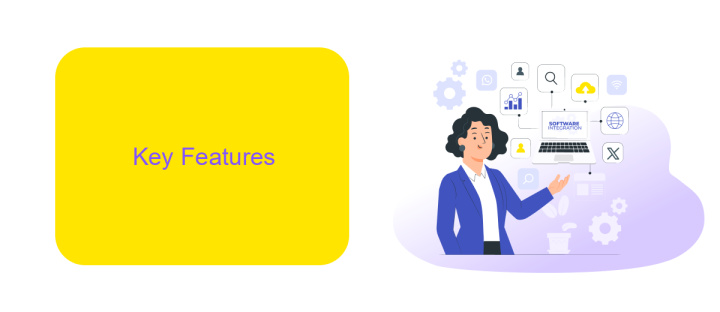Apigee on Premise Vs Cloud
Choosing between Apigee on-premise and cloud solutions is a critical decision for businesses looking to optimize their API management. This article explores the key differences, benefits, and potential drawbacks of both deployment models, helping you determine which option aligns best with your organizational needs, security requirements, and scalability goals. Understanding these distinctions is essential for making an informed choice.
Introduction
Apigee, a leading API management platform, offers two primary deployment options: on-premise and cloud. Each deployment model provides unique benefits and challenges, making it essential for organizations to evaluate their specific needs and constraints before making a decision. This introduction will explore the key differences between Apigee on-premise and cloud solutions, helping you to determine the best fit for your business.
- On-Premise: Offers complete control over the infrastructure, enhanced security, and compliance with stringent data regulations.
- Cloud: Provides scalability, reduced operational overhead, and faster time-to-market with automatic updates and maintenance.
- Hybrid: Combines the best of both worlds, allowing flexibility in managing sensitive data while leveraging cloud benefits.
Understanding the nuances of each deployment option is crucial for optimizing API management strategies. Tools like ApiX-Drive can further streamline integration processes, whether you choose on-premise, cloud, or hybrid deployment. By carefully considering these factors, organizations can make informed decisions that align with their operational goals and regulatory requirements.
Key Features

Apigee offers robust API management features both on-premise and in the cloud. On-premise deployment provides full control over infrastructure, allowing for custom configurations and enhanced security measures tailored to specific organizational needs. This option is ideal for businesses with stringent compliance requirements or those that prefer to maintain their data within their own data centers. Key features include advanced analytics, developer portal customization, and seamless integration with existing enterprise systems.
In contrast, Apigee's cloud deployment offers scalability and ease of use, with automatic updates and reduced maintenance overhead. This model is perfect for organizations looking to rapidly deploy and manage APIs without the complexities of hardware management. Additionally, the cloud version integrates well with other cloud services and platforms, providing a flexible and agile environment. For enhanced integration capabilities, services like ApiX-Drive can be utilized to streamline connections between various applications and APIs, ensuring smooth data flow and operational efficiency.
Architecture Comparison

When comparing the architecture of Apigee on-premise and cloud solutions, it is essential to understand the fundamental differences in deployment, scalability, and maintenance.
- Deployment: Apigee on-premise requires dedicated hardware and infrastructure, whereas the cloud version leverages Google Cloud Platform (GCP) for deployment, reducing the need for physical resources.
- Scalability: The cloud solution offers automatic scaling capabilities, ensuring optimal performance during varying traffic loads. In contrast, on-premise solutions demand manual scaling and resource management.
- Maintenance: On-premise deployments require continuous updates and patches managed by the in-house IT team. The cloud version, however, benefits from automatic updates and maintenance handled by Google, ensuring the latest features and security measures are always in place.
Choosing between Apigee on-premise and cloud solutions depends on your organization's specific needs. For seamless integration and automation, consider utilizing services like ApiX-Drive, which can further streamline your API management processes, regardless of the chosen deployment model. The cloud solution is ideal for organizations seeking agility and reduced overhead, while on-premise may be suitable for those with stringent data control requirements.
Pros and Cons

Choosing between Apigee on-premise and cloud solutions depends on various factors including scalability, control, and cost. On-premise deployments offer greater control over data and infrastructure, which can be crucial for organizations with stringent compliance requirements.
On the other hand, cloud-based Apigee provides flexibility and scalability, making it easier to manage and update APIs without the need for extensive hardware investments. Additionally, cloud solutions often come with built-in support and maintenance, reducing the operational burden on your IT team.
- Pros of On-Premise: Greater control, enhanced security, customizability.
- Cons of On-Premise: Higher initial costs, more complex maintenance, limited scalability.
- Pros of Cloud: Scalability, lower upfront costs, easier maintenance.
- Cons of Cloud: Potential data privacy concerns, reliance on internet connectivity, less control over updates.
For seamless integration of your APIs, consider using services like ApiX-Drive, which can automate and streamline the process, whether you choose an on-premise or cloud-based solution. ApiX-Drive offers a user-friendly interface and robust features to help you manage your API integrations effectively.
Conclusion
In conclusion, both Apigee on-premise and cloud solutions offer unique advantages depending on the specific needs and infrastructure of an organization. On-premise deployment provides greater control over data and compliance, making it ideal for industries with stringent regulatory requirements. Conversely, Apigee Cloud offers scalability, reduced maintenance overhead, and quicker deployment times, which can be highly beneficial for rapidly growing companies and those looking to minimize operational complexities.
Ultimately, the choice between Apigee on-premise and cloud solutions should be guided by an organization’s long-term strategic goals, budget, and technical capabilities. For businesses seeking to streamline their API integration processes, leveraging tools like ApiX-Drive can further enhance efficiency and automation, regardless of the chosen Apigee deployment model. By carefully evaluating these factors, organizations can ensure they select the most appropriate Apigee solution to meet their unique requirements and drive successful API management initiatives.


FAQ
What is the main difference between Apigee on Premise and Apigee Cloud?
Which deployment option is more cost-effective?
How does security compare between Apigee on Premise and Apigee Cloud?
Can I switch from Apigee on Premise to Apigee Cloud or vice versa?
Are there services to help automate and integrate Apigee with other systems?
Routine tasks take a lot of time from employees? Do they burn out, do not have enough working day for the main duties and important things? Do you understand that the only way out of this situation in modern realities is automation? Try Apix-Drive for free and make sure that the online connector in 5 minutes of setting up integration will remove a significant part of the routine from your life and free up time for you and your employees.

